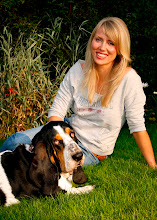
Wild dogs raise their offspring into perfect wild dogs. So, when humans raise puppies into dogs, they run into trouble. Why?
Well, we don’t allow our puppy to get the natural upbringing they’d receive being brought up by other dogs, and we expect the dog to respect our human rules. These are meaningless to the dog, and we fail to take into consideration the dog’s age, developmental stages and its capacity. So, as a result our dog fails to meet our too high demands. This month we’ve listed below some key rules to help you and your pup on the road to success.
- Lower your expectations. In the wild dogs are allowed to grow up naturally in a pack, they learn self-control gradually.
- Adolescence. Around 4 months of age, the puppy moves into adolescence. They get bored easily and have no self-control, they like action and speed. This is where patience and consistency with your puppy is key. Set some boundaries (e.g.) is the puppy allowed on the sofa by invitation only? Is the dog allowed upstairs?
- Avoid long training sessions. The puppy’s ability to concentrate over long periods is poor, and you need to help teach him self-control. Keep training short, fun and easy. Teach in steps, like the ‘sit-stay’ - build from one second to three seconds, five seconds and so on.
- Have fun with your puppy. Play with your dog! This teaches him to focus on you and builds the association that you’re fun to be with! Playing helps build a bond with your dog too. Focus more energy into playing than walking the puppy. Playing gives the dog mental exercise, as well as, physical exercise.
- Allow the puppy breaks and rest if he looses his concentration while training.
- Slowly introduce new experiences, environments, noises, machinery, clothing, animals and people to the puppy. Take it slowly! You must not put pressure on your puppy or yourself. Stay calm. Your behaviour dictates the behaviour of your dog. If the puppy is scared by something move away in a calm manner, do not make a fuss of the dog (this will only re-enforce the dog’s scared behaviour). Show you are not bothered and there is no need for concern.
- Never hit, shout or punish the puppy. Aggression only begets aggression.
- Toilet training. This is where ‘consistency’ is your friend! Look for the key times the puppy will go, typically upon walking, playing and eating. Pups will sniff and circle. Encourage the puppy outside into the garden. As the puppy goes to the toilet say a word like “be clean”, this build the association of that word to that action. In time you will be able to say the word and the dog will eliminate. Once the pup has finished, walk up to the puppy and treat with food reward immediately and give lots of praise. This increases the repetition of the ‘good’ behaviour. Don’t go inside the house straight after the pup has been to the toilet – if you do, the puppy may learn to hold on for longer, as they want more time to explore the outside. If the pup goes to the toilet inside the house and you haven’t caught him in the act, simply clean it up with no fuss (say nothing and no eye contact). If you catch the puppy about to go or mid-flow – pick it up gently and take outside (repeat as above).
- Start grooming early. Teach your puppy that grooming is a pleasant experience. Brush the puppy when he’s sleepy, gently touch his ears/teeth/paws to enable him to get used to being investigated in these areas. This will help when he has to go to the vets, or when you need to clip his claws or brush his teeth!
- Learn to communicate with your dog. Speak to Hanne Grice about puppy training and the Amichien Bonding method – we’re here to help you. Learn the dog’s language and you’ll understand each other and have the relationship you deserve!
For more information call us on 01442 878628 or email us at info@walk-the-dog.net You can find out more about Walk the Dog Puppies, our puppy classes by visiting our website; http://www.walk-the-dog.net/

